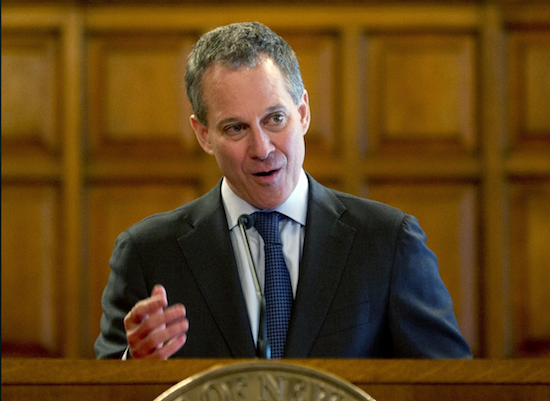Attorney General announces revolutionary plan for the wrongfully convicted
Gives Opportunity That Would Have Benefited a few Brooklyn Defendants

Schneiderman.png
New York Attorney General Eric Schneiderman on Wednesday announced planned legislation that would allow those who are found wrongfully convicted and imprisoned for a crime to present a claim for damages against the state.
The “Unjust Imprisonment Act,” as the legislation will be called, is scheduled to be introduced to the legislature by New York State Assemblyman Joe Lentol (D-Northern Brooklyn).